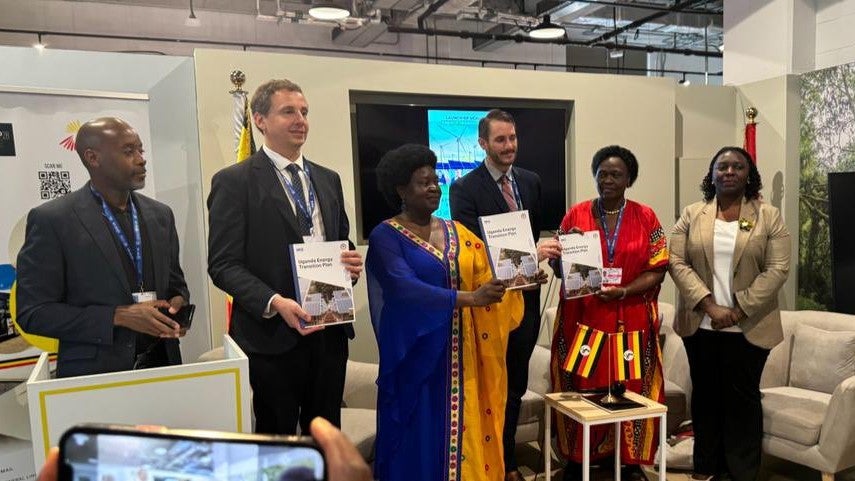
Uganda’s Ministry of Energy and Mineral Development in collaboration with the International Energy Agency (IEA) has issued the country’s Energy Transition Plan (ETP).
Announced on Tuesday (5 December) at the COP28 climate summit in Dubai, the ETP includes a pathway to delivering universal energy access by 2030 and a predicted peak in emissions in 2040. It will guide the development and modernization of Uganda’s energy sector in line with the country’s economic development.
Other key aspects of the plan include the aim to increase renewable energy production to 52GW by 2040 and the “innovative approach” of funding the ETP in part through oil and gas reserves.
At the forefront of global climate action, Uganda, in collaboration with the International Energy Agency (IEA), has launched an ambitious Energy Transition Plan (ETP) at COP28.
— Ministry of Energy & Mineral Development (@MEMD_Uganda) December 5, 2023
This groundbreaking initiative is a visionary blueprint to revolutionise its energy sector. It is… pic.twitter.com/eUJl4pZoJD
Oil has been a controversial topic in Uganda recently, with activists having protested the construction of the East African Crude Oil Pipeline, set to be the longest heated oil pipeline globally at 1,443km.
However, speaking at COP28 on Tuesday, Ruth Nankabirwa Ssentamu, Uganda’s Minister of Energy and Mineral Development, said: “We have a unique opportunity to fund this transition through our natural resources, setting an example of responsible and sustainable development.”
The announcement was also celebrated by Solomon Muyita, Principal Communications Officer at the Ministry of Energy and Mineral Development, who shared the plan to move 94% of the population from biomass to renewable energy.
Day VI of #Cop28:
— Solomon Muyita (@SMuyita) December 5, 2023
Uganda takes centre stage at COP28! Collaborating with the IEA, they unveiled a visionary Energy Transition Plan. By 2030, 94% of the population will shift from biomass to renewables, setting a powerful example for global climate action. #UgandaEnergyRevolution pic.twitter.com/AhbAMSWJmW
According to IEA analysis, the trajectory outlined in the plan will see Uganda’s energy-related greenhouse gas (GHG) emissions reach just above 20MtCO2-eq by 2030, which is within the range of specified mitigation targets, before peaking at around 23 MtCO2-eq in 2040. Without the changes outlined in the plan, GHG emissions would reach 30Mt CO2-eq in 2030, and would not peak before 2050.
Despite having a GDP per capita 40% below the sub-Saharan Africa average, Uganda has one of the fastest-growing populations and economies globally. Its real GDP has grown by approximately 6% annually over the last two decades, and the International Monetary Fund expects it to reach upper-middle-income status by 2040.
According the IEA’s analysis of the ETP, if objectives are to be met, “energy systems must modernize and expand rapidly to meet these ambitions”. The objectives specified in the ETP state that Uganda will:
- Provide universal access to electricity and cleaner cooking by 2030.
- Modernize and diversify Uganda’s energy mix and promote its efficient use across all sectors to support industrial growth, poverty reduction and socioeconomic transformation.
- Ensure secure and affordable energy supply.
- Mitigate energy emissions in line with Uganda’s conditional climate commitments, which imply a 20% reduction compared to baseline emissions in 2030.
- Position Uganda as an energy hub for the East African region.
The IEA analysis also found that, in order to achieve net zero emissions by 2065, Uganda will require $8bn in annual clean energy investments by 2030, with the majority of the funding directed towards improving energy access and expanding clean energy capacity.
Ssentamu said: “This Energy Transition Plan marks a huge step forward in our efforts to ensure every person in Uganda has access to secure, affordable and sustainable energy. The plan shows how Uganda’s major energy advantages can be leveraged responsibly to meet our Government’s broader objectives.”
Don’t miss our coverage of COP28! Subscribe here for exclusive insights & analysis.
Our signals coverage is powered by GlobalData’s Thematic Engine, which tags millions of data items across six alternative datasets — patents, jobs, deals, company filings, social media mentions and news — to themes, sectors and companies. These signals enhance our predictive capabilities, helping us to identify the most disruptive threats across each of the sectors we cover and the companies best placed to succeed.



